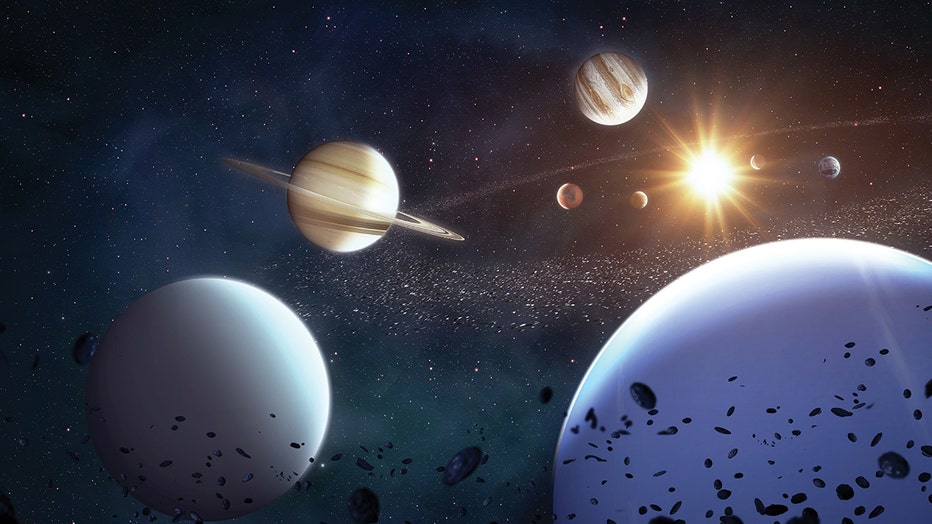Heads up: 7 planets will be in retrograde this summer

Direct Imaging: One of the ways to find a planet
Astronomers can take pictures of planets outside of our solar system by using a method called "direct imaging." It involves removing the overwhelming glare of the star the planets orbit. (Courtesy: NASA)
This summer, within our solar system, not one, not two, but a staggering seven planets will be in retrograde.
While the term "retrograde" tends to conjure up feelings of dread and overwhelm among astrologists and astrology fans, NASA said the phenomenon is common.
According to the space agency, planets move from west to east, from a human’s perspective. However, periodically, they appear to move east to west, which is referred to as a retrograde motion.
"A good analogy is to imagine the planets as speed skaters in different lanes on a circular track. The innermost skater’s loops are short and fast," NASA told FOX Television Stations. "From the perspective of a skater on the third lane, the first skater sometimes travels the same direction and sometimes, the opposite."

Illustration of the Solar System viewed from beyond Neptune, with all eight planets visible around the Sun, created on April 14, 2016. (Credit: Tobias Roetsch/Future Publishing via Getty Images)
In fact, the term retrograde actually comes from the Latin word retrograde, which literally means ‘backward step,’ the agency explained, adding, that the planet Mercury is in retrograde most often because it's the fastest planet traveling around the sun.
So, why do retrogrades cause people to worry?
According to the Farmers Almanac, astrologers believe that the moon, stars, planets, and sun affect happenings here on Earth and that each planet in our solar system rules a different aspect of life.
"Like the Greek messenger god it was named for, Mercury is said to govern transportation and communication," the almanac explained earlier this year. "Those who dread Mercury’s retrograde motion say that, when the planet travels backward, its power to positively influence these domains is stifled, leading to chaos."
RELATED: NASA finds second Earth-sized planet orbiting in habitable zone of its star
But NASA noted that astrology is not the same as astronomy.
"Astrology is based on the belief that the location of certain stars and planets in the sky can predict the future or describe what a person is like," NASA continued, adding, "While astrology is important to some cultural traditions, its claims are not based on scientific evidence."
Planets in retrograde in summer 2023:
Pluto retrograde: June 12 - Oct. 1
Saturn retrograde: June 17 - Nov. 3
Neptune retrograde: June 30 - Dec. 5
Venus retrograde: July 23 - Sept. 3
Mercury retrograde: Aug. 23 - Sept. 15
Uranus retrograde: Aug. 28 - Jan. 27
Jupiter retrograde: Sept. 4 through Dec. 30
Planetary phenomena happen every single month, so sky-gazers can keep up-to-date on these planetary events here.
This story was reported from Los Angeles.

